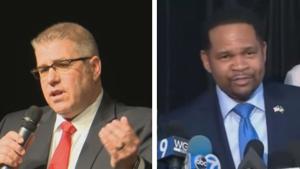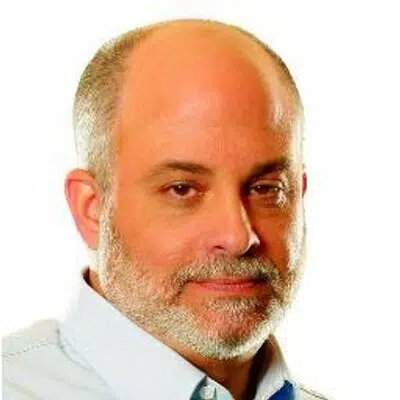(The Center Square) – The six Republican candidates looking to get the party’s nomination for Illinois governor met Tuesday night, but they were split up into two groups of three.
The first group of candidates on NBC5 Chicago featured Aurora Mayor Richard Irvin, Paul Schimpf, a former state senator, and Max Solomon, a lawyer from Hazel Crest. The other group seen on WGN consisted of self-proclaimed outsider Jesse Sullivan, state Sen. Darren Bailey, R-Xenia, and businessman Gary Rabine.
The candidates addressed a number of issues ranging from race in schools, violence in the state, and the issue of abortion.
The candidates were asked why they believe Illinoisans should support them for governor.
Irvin said he will do exactly what the people of Illinois need.
“I will reduce our taxes by expanding our tax base and attracting new business into the city and giving money back to the taxpayers by attracting new jobs and residents and getting things done,” Irvin said. “We need a governor who is going to do that exact same thing for the state of Illinois, and that’s exactly what I will do.”
Bailey laid out why he’s seeking the job.
“I am running for governor to restore hope to all Illinoisans, to be serving to the people, and building back education and restoring this great state,” Bailey said.
One of the major topics of the debates was gun violence. The candidates were asked what they would change to help slow the rate of violent gun crimes in Chicago and elsewhere in the state.
Irvin said it’s necessary to get a governor who can lead the state “and work with mayors like [Chicago Mayor] Lori Lightfoot and other mayors throughout the state to address the crime.”
Sullivan said he will lead the effort to replace any state attorney that fails to do their job.
“I will lead the recall efforts for [Cook County State’s Attorney] Kim Foxx and any other state attorney who fails to prosecute the criminals in the state of Illinois,” Sullivan said. Such a move would require legislation to allow for a recall election of a sitting state’s attorney. A bill to that effect has been filed but has not been advanced.
Rabine also focused on Foxx and her performance.
“It’s not about more money, it’s about letting our police do their jobs,” Rabine said. “When we look at Kim Foxx, she is a nightmare.”
The issue of abortion was discussed as well during the debates after a leaked U.S. Supreme Court opinion indicates that the justices will overturn Roe V. Wade, returning the issue back to individual states.
Bailey said if he is elected governor, he will put a plan in place that the rest of the country will want to adopt.
“Only when the life of the mother is at stake is the only exception I have,” Bailey said. “When I am governor, we will partner with civic and religious organizations. We are going to do something great in Illinois that I believe will be used all over the nation.”
Irvin declined to give his stance on the subject.
“To comment on this leaked draft would be irresponsible,” Irvin said.
The moderator interrupted Irvin and asked if he thinks voters deserve to know where he stands. Irvin responded by saying he is a lawyer.
“It is irresponsible, I am a lawyer,” Irvin said.
The candidates also addressed the mass shooting that happened Tuesday afternoon in Texas in which 19 people, including 18 children, lost their lives.
Irvin said what is most important is coming together as Americans.
“We need to do what we need to do to bring our communities together,” Irvin said. “We need to show that we will not let senseless acts of violence define who we are as Americans.”
Bailey urged Illinois residents to help lift up the people of Uvalde, Texas.
“I would like to remind the families across Illinois that tonight and over the next few days to hold families up of Uvalde, Texas after this grievous action took place,” Bailey said.
The gubernatorial primary elections will be held on June 28. Early voting is under way.
Recent polling from Emerson College found around 37% of likely Republican voters were still undecided, with Irvin holding a slight lead over Bailey, 24% to 19.8%.
Rabine polled 7.8%; Sullivan, 7.4%. Schimpf and Soloman eached polled at about 4.2%.







